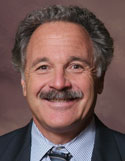Today we are featuring a guest blog from Ron Canter, of the Law Offices of Ronald S. Canter, LLC:
“You don’t  believe we’re on the eve of destruction?”
believe we’re on the eve of destruction?”
Singer/songwriter Barry McGuire penned this foreboding inquiry in the “Eve of Destruction,” a protest movement anthem that topped the popular music charts in 1965.
Mr. McGuire surveyed the world around him and found a people shocked by the cultural changes of the 1960s. He saw a society engaged in often violent action and reaction to the struggle for racial equality, and he feared a cold war between the U.S. and Soviets that threatened to turn red hot in an instant. The imminent catastrophe Mr. McGuire foresaw did not come to pass. Our generation improved and tried to make up for the perceived mistakes of the 60s. The next generation will also strive to do better and correct the errors of this generation, and so on and so on.
Many in the debt collection business have whispered or thought out loud that the industry is on its own eve of destruction. We are told of 10,000 FDCPA suits that will be filed this year. Every day, we read a new media report exposing outrageous conduct by criminals who pose as debt collectors. We face an increasingly hostile judiciary and similarly antagonistic state legislatures intent on imposing draconian new regulations that would stifle the industry. Just as Mr. McGuire was wrong some four decades ago, the whispers heard amongst debt collectors of doom and gloom will be proven wrong because:
Debt collectors are on the right side of the equation.
Everyone has either had a personal experience or knows of someone who loaned money to a friend, relative, acquaintance or business associate and who was never paid back. The lender who extended a helping hand in a time of need rightfully feels abused, misled, and put upon when the money is not repaid. Third party debt collectors represent those businesses and individuals that have been similarly put upon, including creditors who loaned money that was never repaid and service providers who completed the work and are left with nothing in return for their labor. Debt collectors who follow the law and ask debtors to repay their just obligations are doing the right thing and have no need to apologize for what they do.
“One bad apple don’t spoil the whole bunch”
A few years ago, a New York Times reporter was fired when it was discovered that he fabricated stories carrying his by-line. More recently, the Governor of New York, who prosecuted prostitution rings, left office after it was discovered that he was paying a high price hooker for her services.
We do not condemn all journalists or politicians based on these isolated incidents of misconduct. Likewise, debt collectors should also not be judged because of a few criminals who show willful disregard for the law happened to choose the ARM industry as the platform for their activities.
What You Can Do
Honest and ethical debt collection businesses cannot remain silent in the face of unprecedented attacks. The ARM industry needs to respond to media reports that paint all debt collectors as a loathsome lot because a few individuals have decided to use debt collection to perpetrate criminal acts. Print media will publish letters to the editor from industry representatives and internet media outlets allow for public comment.
insideARM.com has just released a free report “5 Steps to Protect Your Image as a Debt Collector.” Use this as a resource in writing your letter to the editor or in posting an on-line comment to put the collection industry in the proper light. The public affairs offices of NARCA, ACA International, DBA International and CLLA also can provide scripts for members to use in publicizing what is right about debt collection. Take advantage of every opportunity to launch your own counterattack the next time you read or see a slanted story on the collection industry.
Mr. Canter is the founding member of The Law Offices of Ronald S. Canter, LLC of Rockville, Maryland. He is a member of the Bars of Maryland, Pennsylvania, Florida and the District of Columbia. He is also admitted to practice in federal courts through the United States, including the Supreme Court and several courts of appeal.
Mr. Canter has been engaged in the private practice of law since 1980. He is a recognized authority on creditor’s rights and the regulation of collection practices. He has represented creditors, attorneys and collection agencies in complex litigation in both Federal and state courts. Mr. Canter has successfully prosecuted appeals before state and federal courts on a number of significant issues affecting the credit and collection industry. He appeared, as counsel of record for the National Association of Retail Collection Attorneys (NARCA), in Heintz v. Jenkins, the only Fair Debt Collection Practices Act case to reach the Supreme Court.




![[Image by creator from ]](/media/images/patrick-lunsford.2e16d0ba.fill-500x500.jpg)
![the word regulation in a stylized dictionary [Image by creator from ]](/media/images/Credit_Report_Disputes.max-80x80.png)
![Cover image for New Agent Onboarding Manuals resource [Image by creator from insideARM]](/media/images/New_Agent_Onboarding_Manuals.max-80x80_3iYA1XV.png)


![[Image by creator from ]](/media/images/New_site_WPWebinar_covers_800_x_800_px.max-80x80.png)
![[Image by creator from ]](/media/images/Finvi_Tech_Trends_Whitepaper.max-80x80.png)
![[Image by creator from ]](/media/images/Collections_Staffing_Full_Cover_Thumbnail.max-80x80.jpg)
![Report cover reads One Conversation Multiple Channels AI-powered Multichannel Outreach from Skit.ai [Image by creator from ]](/media/images/Skit.ai_Landing_Page__Whitepaper_.max-80x80.png)
![Report cover reads Bad Debt Rising New ebook Finvi [Image by creator from ]](/media/images/Finvi_Bad_Debt_Rising_WP.max-80x80.png)
![Report cover reads Seizing the Opportunity in Uncertain Times: The Third-Party Collections Industry in 2023 by TransUnion, prepared by datos insights [Image by creator from ]](/media/images/TU_Survey_Report_12-23_Cover.max-80x80.png)
![Webinar graphic reads RA Compliance Corner - Managing the Mental Strain of Compliance 12-4-24 2pm ET [Image by creator from ]](/media/images/12.4.24_RA_Webinar_Landing_Page.max-80x80.png)